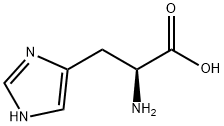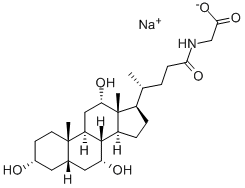Glycine , Used for electricity, ≥99% , 56-40-6
Synonym(s):
Glycine;TG;Aminoacetic acid;2-Aminoacetic acid;TGC
CAS NO.:56-40-6
Empirical Formula: C2H5NO2
Molecular Weight: 75.07
MDL number: MFCD00008131
EINECS: 200-272-2
| Pack Size | Price | Stock | Quantity |
| 100g | RMB53.60 | In Stock |
|
| 500G | RMB204.80 | In Stock |
|
| 2.5KG | RMB799.20 | In Stock |
|
| 5kg | RMB1503.20 | In Stock |
|
| others | Enquire |
PRODUCT Properties
| Melting point: | 240 °C (dec.) (lit.) |
| Boiling point: | 233°C |
| Density | 1.595 |
| bulk density | 920kg/m3 |
| vapor pressure | 0.0000171 Pa (25 °C) |
| refractive index | 1.4264 (estimate) |
| FEMA | 3287 | GLYCINE |
| Flash point: | 176.67°C |
| storage temp. | 2-8°C |
| solubility | H2O: 100 mg/mL |
| form | powder |
| pka | 2.35(at 25℃) |
| color | <5 (200 mg/mL)(APHA) |
| PH | 4(0.2 molar aqueous solution) |
| Odor | Odorless |
| PH Range | 4 |
| biological source | synthetic |
| Odor Type | odorless |
| Water Solubility | 25 g/100 mL (25 ºC) |
| λmax | λ: 260 nm Amax: 0.05 λ: 280 nm Amax: 0.05 |
| JECFA Number | 1421 |
| Merck | 14,4491 |
| BRN | 635782 |
| Stability: | Stable. Combustible. Incompatible with strong oxidizing agents. |
| InChIKey | DHMQDGOQFOQNFH-UHFFFAOYSA-N |
| LogP | -3.21 |
| CAS DataBase Reference | 56-40-6(CAS DataBase Reference) |
| NIST Chemistry Reference | Glycine(56-40-6) |
| EPA Substance Registry System | Glycine (56-40-6) |
| Absorption | ≤0.15 at 280 at 1M |
Description and Uses
Glycine (abbreviated as Gly or G) is an organic compound with the formula NH2CH2COOH. Having a hydrogen substituent as its side-chain, glycine is the smallest of the 20 amino acids commonly found in proteins. Its codons are GGU, GGC, GGA, GGG of the genetic code.
Glycine is a colourless, sweet-tasting crystalline solid. It is unique among the proteinogenic amino acids in that it is not chiral. It can fit into hydrophilic or hydrophobic environments, due to its minimal side chain of only one hydrogen atom. Glycine is also the genus name of the Soybean plant (species name = Glycine max).
In the US, glycine is typically sold in two grades: United States Pharmacopeia (“USP”), and technical grade. Most glycine is manufactured as USP grade material for diverse uses. USP grade sales account for approximately 80 to 85 percent of the U.S. market for glycine.
Pharmaceutical grade glycine is produced for some pharmaceutical applications, such as intravenous injections, where the customer’s purity requirements often exceed the minimum required under the USP grade designation. Pharmaceutical grade glycine is often produced to proprietary specifications and is typically sold at a premium over USP grade glycine.
Technical grade glycine, which may or may not meet USP grade standards, is sold for use in industrial applications; e.g., as an agent in metal complexing and finishing. Technical grade glycine is typically sold at a discount to USP grade glycine.
Animal and human foods
Other markets for USP grade glycine include its use an additive in pet food and animal feed. For humans, glycine is sold as a sweetener/taste enhancer. Certain food supplements and protein drinks contain glycine. Certain drug formulations include glycine to improve gastric absorption of the drug.
Cosmetics and miscellaneous applications
Glycine serves as a buffering agent in antacids, analgesics, antiperspirants, cosmetics, and toiletries.
Many miscellaneous products use glycine or its derivatives, such as the production of rubber sponge products, fertilizers, metal complexants.
Chemical feed stock
Glycine is an intermediate in the synthesis of a variety of chemical products. It is used in the manufacture of the herbicide glyphosate. Glyphosate is a non-selective systemic herbicide used to kill weeds, especially perennials and broadcast or used in the cutstump treatment as a forestry herbicide.
Safety
| Symbol(GHS) |  GHS07 |
| Signal word | Warning |
| Hazard statements | H315-H319-H335 |
| Precautionary statements | P261-P271-P280 |
| Risk Statements | 33 |
| Safety Statements | 22-24/25 |
| WGK Germany | 2 |
| RTECS | MB7600000 |
| TSCA | Yes |
| HS Code | 29224910 |
| Hazardous Substances Data | 56-40-6(Hazardous Substances Data) |
| Toxicity | LD50 orally in Rabbit: 7930 mg/kg |



